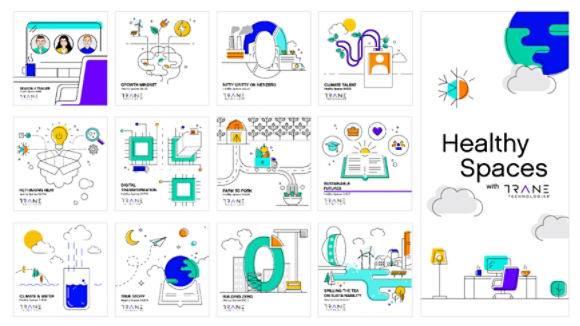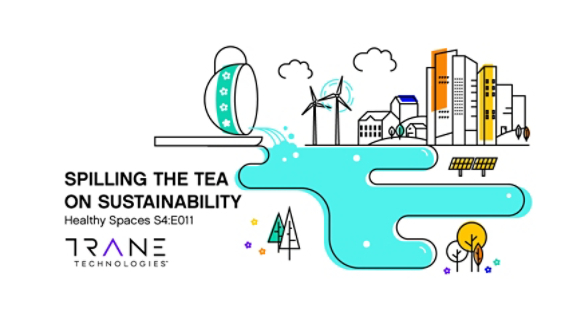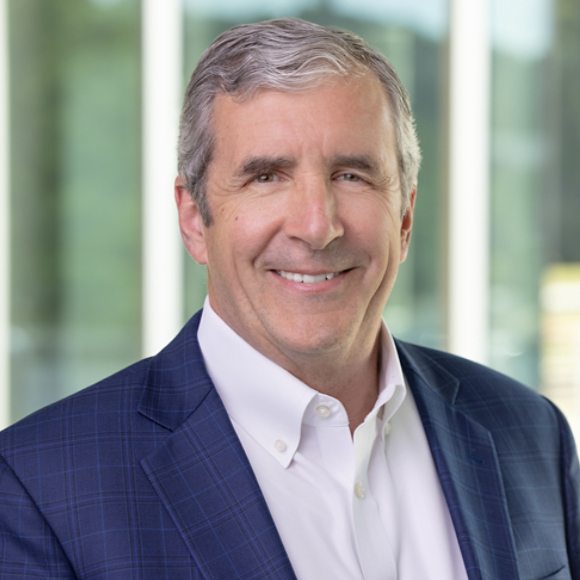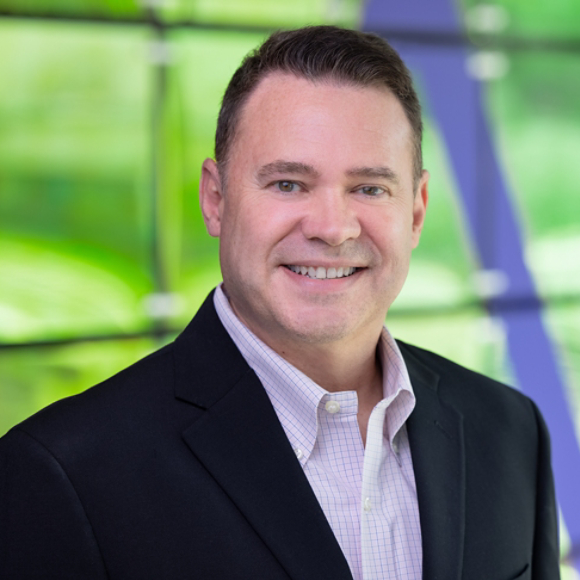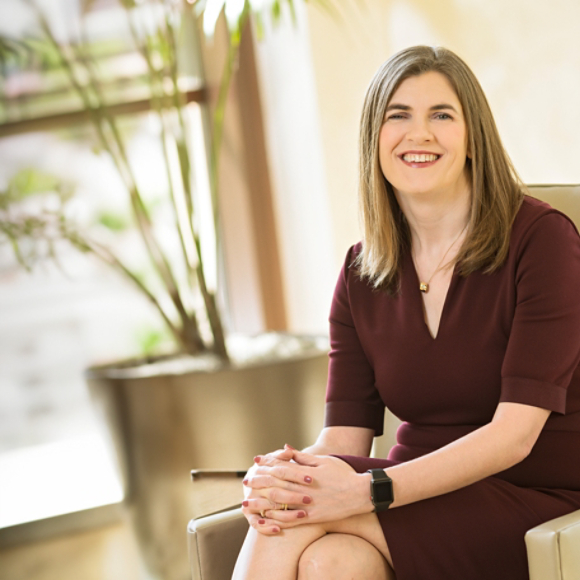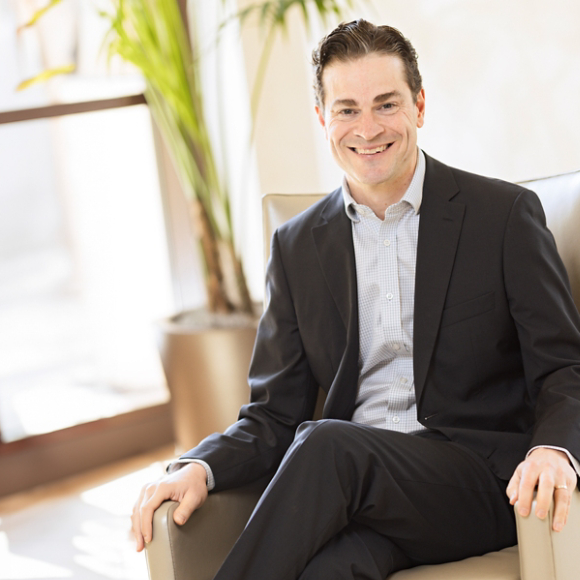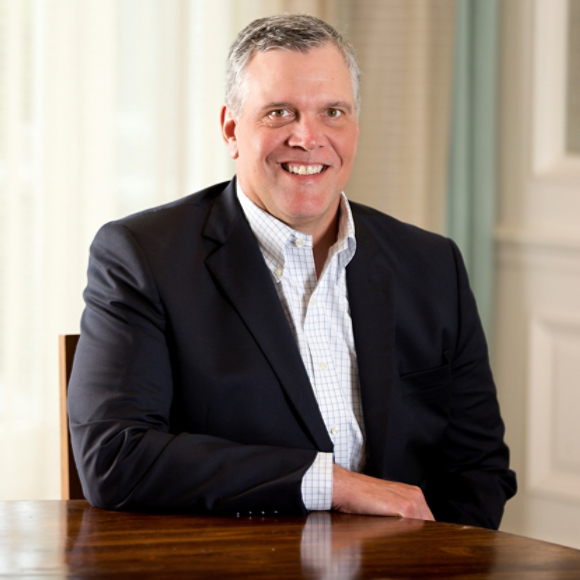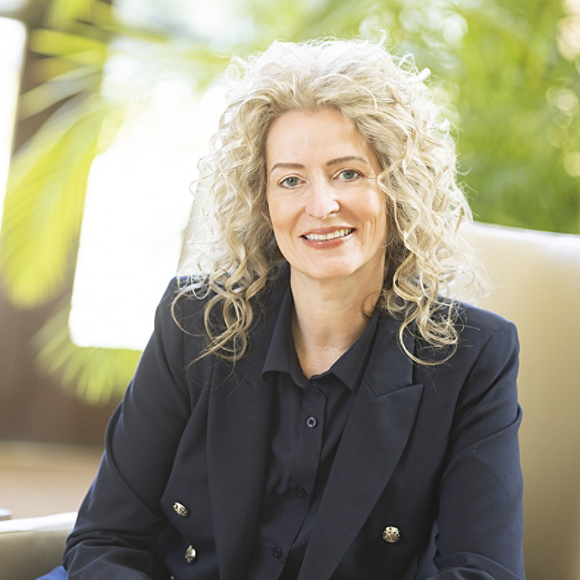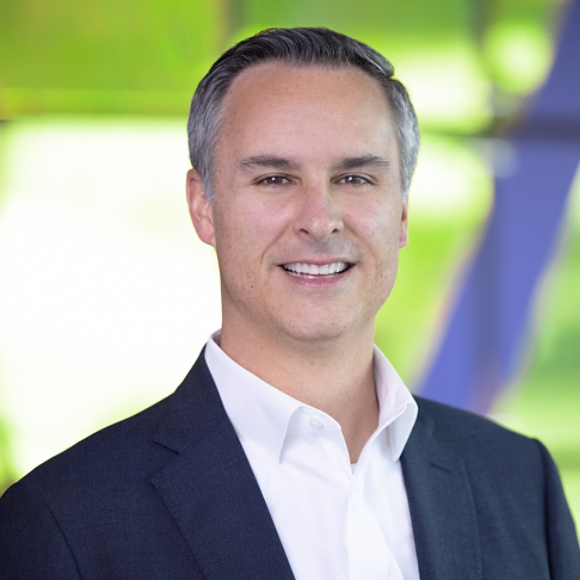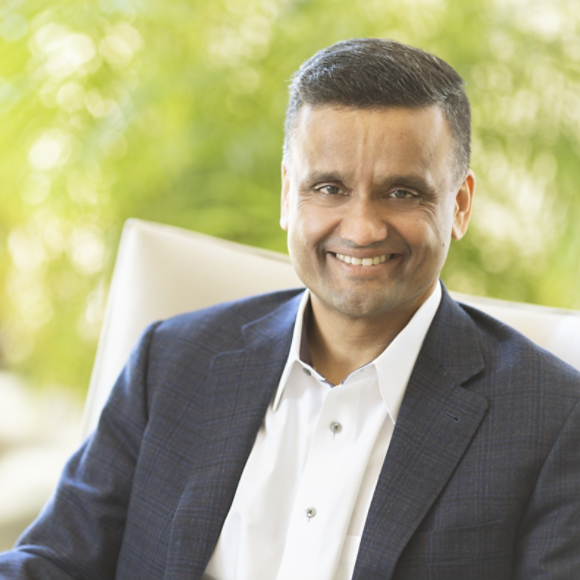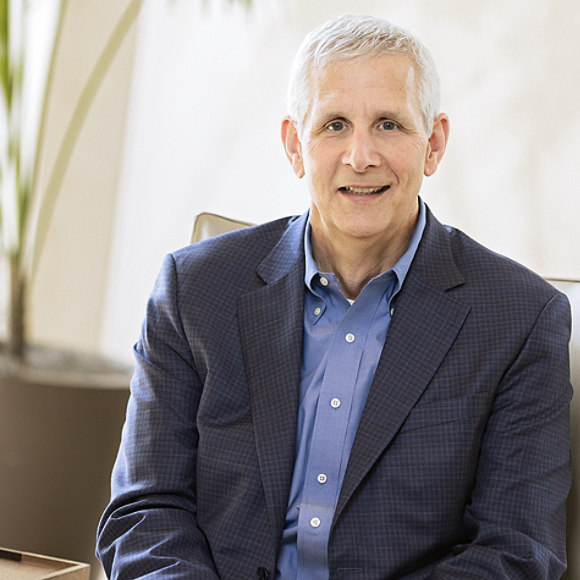August 05, 2024
Healthy Spaces Podcast: Season 4, Episode 4 - Rethinking Heat
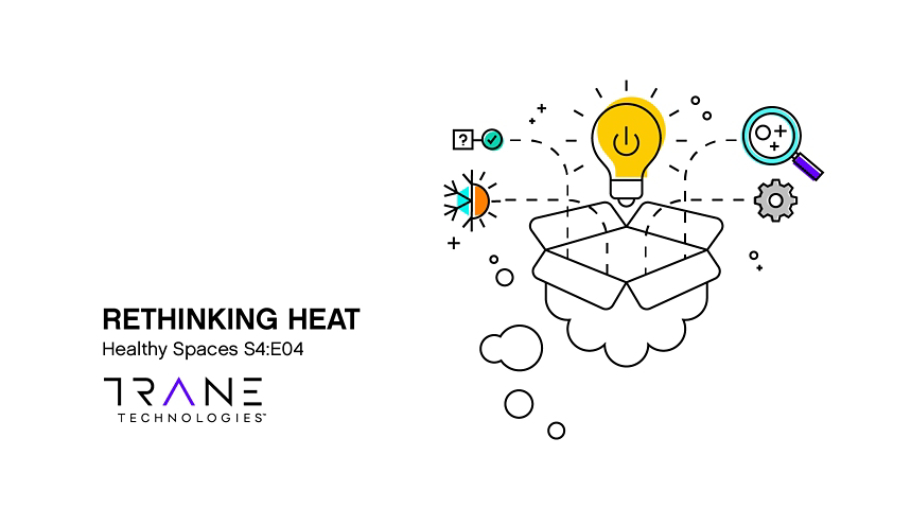
According to NASA, July 22, 2024 was the hottest day ever recorded on Earth. This follows records set in July 2023. Extreme heat is now a part of our everyday lives. How can we rethink heat policy to make our communities more resilient?
In this episode of the Healthy Spaces podcast, our VP of Sustainability Scott Tew talks with Ashley Ward, director of the Duke University Heat Policy Innovation Hub, and Helen Walter-Terrinoni, Trane Technologies Director of Global Climate Policy, about elevating science and community insights to protect people from extreme heat.
On the sidelines of Duke University’s first-of-its-kind Heatwise Summit, Ashley, Helen and Scott workshop an example of rethinking heat policy—the fact that 36,000 public schools in the United States lack adequate cooling. They talk about how to bring the public and private sector together to solve this challenge creatively and how schools could serve as a cooling hub for rural communities.
Listen to the full episode to learn more about how to address heat vulnerability in an equitable way and build resilience in our communities for the long term.
AUDIO PROMPT - MUSIC FADE IN
[00:00:00] Dominique: According to the U.S. national weather service, extreme heat is now more of a threat to human life than tornadoes, hurricanes, and floods combined. So, what needs to change in order for society to beat the heat? And how can we rethink policy to make our communities more heat resilience?
[00:00:21] Ashley Ward: We have not invested the same amount of energy and time and resources and helping build resilience in our rural communities for heat, and the solutions that we do have are not solutions that are easily transferable to rural areas. And so, one of the things we need to be thinking about critically is what are the lessons we've learned as we've been doing this work? How can we take those lessons learned and apply them to the rural communities who are really experiencing severe impacts from extreme heat?
[00:00:54] Dominique: And what changes can the construction industry make today to tackle the health challenges posed by rising temperatures?
[00:00:59] Helen Walter-Terrinoni: There are a lot of practical things that we know today that we could do around passive cooling. If you think about cool roofs, cool pavement, the way that a building is oriented on a site, and whether it faces or doesn't face the sun, trees adjacent to buildings, lots of different things can be done that we know today, and I think it's important for us to take action quickly on the things that we know to do.
[00:01:23] Dominique: You just heard from Ashley Ward, Director of the Duke University Heat Policy Innovation Hub, and Helen Walter-Terrinoni, Leader of the Global Climate Policy Team at Trane Technologies. I'm Dominique Silva, and you're listening to Healthy Spaces, the podcast exploring how technology and innovation are transforming the spaces where we live, learn, work, and play.
[00:01:47] Dominique: In today's episode, we will delve into the importance of heat policy in the context of rising global temperatures and increasing heat waves.
[00:01:55] Dominique: We'll discuss practical measures like passive cooling strategies and sustainable building designs, all which can be implemented today to create cooler and more livable environments. And we'll also explore how effective heat policies can protect vulnerable populations, enhance urban resilience, and mitigate extreme heat impacts
AUDIO PROMPT - MUSIC FADE OUT
[00:02:23] Dominique: Our conversation today begins with the topic of equity and what it means in the context of heat policy.
[00:02:29] Helen Walter-Terrinoni: I'm the luckiest person in the world to have this role at Trane Technologies to work on climate issues around policy and advocacy. So, Trane Technologies is an amazing place to work. Great work culture, and we are deeply interested in sustainability as well as these equity questions around extreme heat and access to cooling, as needed, as you can imagine.
[00:02:54] Scott: Thanks Helen. You mentioned equity, maybe a strange word to use in a heat discussion, but Ashley, you held a conference earlier this summer, Helen and I were honored to take part in it, along with a several hundred other people who were focused on things related to heat, but equity was one of the themes for your conference.
[00:03:13] Scott: Can you talk about why equity is a relevant topic?
[00:03:16] Ashley Ward: You know, I love how you open this up saying, you know, it doesn't matter which political spectrum, where you fall on the political spectrum, like people are talking about heat. And I actually think that is an incredible opportunity for this moment because heat as a topic has not been heavily politicized yet.
[00:03:33] Ashley Ward: And so, that means that some of the underlying issues that create some of the vulnerabilities that we see around heat, like housing and worker protections and cooling, access to cooling, these things that we typically think about when we think about equity, right? Equitable access to cooling, equitable access to safe work environments, and so on and so forth, perhaps this is a great opportunity to really make some strides forward on those topics that we've been working hard to do over the last many years and so I see this as a real opportunity moment.
[00:04:07] Scott: And the opportunities are all around us, Ashley, you recently spoke to the New York times, and I read that article, and you mentioned some solutions borrowed from the urban environment that we could apply in the rural environment, which I think also gets to your sort of equity concerns.
[00:04:25] Scott: Can you tell us about your thoughts on how we're how we need to adapt some solutions?
[00:04:29] Ashley Ward: When we look at heat related illness rates, it isn't unusual that they are higher in rural areas than in urban areas, and in urban communities, it is a very important issue. I don't mean to discount the impact of the urban heat island in urban communities.
[00:04:43] Ashley Ward: It is very important. However, we have not invested the same amount of energy and time and resources and helping build resilience in our rural communities for heat, and the solutions that we do have those like cool pavements, and tree planting campaigns, or cooling centers are not solutions that are easily transferable to rural areas. And so, one of the things we need to be thinking about critically is what are the lessons we've learned as we've been doing this work particularly around community networks and how to build social capital in communities that have been played out in urban communities? How can we take those lessons learned and apply them to the rural communities who are really experiencing severe impacts from extreme heat?
[00:05:33] Scott: And there's a solution side to this, Ashley. There's also the policy side of all of this because this is an all-in game, right? This is not just one company like Trane Technologies offering more air conditioning. This is also policy related to how communities have access to things and how funding is applied across states and in communities throughout the world. Helen, you're a scientist and you're also a climate policy expert. You spend a lot of time speaking to scientists and the policy makers. Can you give your thoughts about how do you effectively do this work today to make it actionable for them?
[00:06:14] Scott: Policy makers sometimes are looking for what exactly can we do? And you're one of those people that tries to translate, so what are your thoughts about what do we do about this with policy makers?
[00:06:28] Helen Walter-Terrinoni: Extreme heat touches almost everybody, if not everyone, whether it's a little kid with toes on pavement, bare feet on pavement, or, if you think about adults and elderly people, in their home, and maybe they don't have access to cooling.
[00:06:43] Helen Walter-Terrinoni: It's something that touches all of us, and I think it's important for us to keep that in front of policymakers that we all have a concern around this important issue, and I think that as we think about the solutions, there are a lot of practical things that we know today that we could do around passive cooling.
[00:07:01] Helen Walter-Terrinoni: If you think about cool roofs, cool pavement, the way that a building is oriented on a site and whether it faces or doesn't face the sun, trees adjacent to buildings, lots of different things can be done that we know today, and I think it's important for us to take action quickly on the things that we know to do.
[00:07:19] Helen Walter-Terrinoni: There are probably some things that we're still learning and that will bring us to practical solutions in the future. Whether that be, you know, power outages and how do we handle that, especially in rural communities. How do we bring people to cooling centers or how do we set up something for cooling in homes?
[00:07:37] Helen Walter-Terrinoni: So, I, you know, I think that there are things we know to do today. So, my old boss used to say, meanwhile back at the ranch, you know, like they used to on the cowboy movies, meanwhile, back at the ranch, we can do these things while we kind of figure out some of these other actions that we might be able to take that might require more investment or maybe things that we don't understand right now.
[00:07:57] Ashley Ward: This point that Helen just made about the near term versus the long-term solution spectrum is such a critical and important point because a lot of times you hear people say what about this big issue that we haven't worked out yet?
[00:08:13] Ashley Ward: Yes, whatever that issue is, is very important, but between now and when that issue has a resolution, there's a heat season every year in between. And so, I love the idea of thinking at different time scales for how we respond to this and deploying what we know because we do know a lot.
[00:08:31] Ashley Ward: So, what is it that we know that we can deploy now in the short term as we work on the longer-term solutions? And I think that's a critical point.
AUDIO PROPMT - MUSIC FADE IN
[00:08:42] Dominique: It's clear there are many practical solutions that can be implemented today to help mitigate the impact of extreme heat.
[00:08:50] Dominique: But on many occasions, we’ve been treating extreme heat as a sporadic event and relying on short term solutions like cooling centers. Of course, these solutions are important, but ultimately, they aren't designed for long term sustainability. So, how do we leverage our current knowledge to design effective long-term solutions?
[00:09:12] Dominique: And how can we ensure that our immediate actions align with and support our sustainable development goals?
AUDIO PROMPT - MUSIC FADE OUT
[00:09:22] Helen Walter-Terrinoni: So, I live in the northeast and there are a lot of places in the northeast where schools do not have cooling, and where we saw schools shut down for high temperatures this spring, this summer, before the end of the school year. And so, you know, if you think about that that's going to be the answer, you can't send folks to those places where there's no cooling. And we all know that learning, that learning and working, we're more effective with more moderated temperatures. Whether it is, you know, maybe funneling some of the funding that we're seeing come through IRA and some of the inflation reduction act and some of these other sources, or maybe prioritizing schools and hospitals and so forth.
[00:10:00] Helen Walter-Terrinoni: That may be one mechanism that we could use in the near term. But again, longer-term, I think we're going to have to have a both and approach to some of these things. Some of these passive cooling strategies as well as physical cooling using energy. And I think that comes down to building codes local and national building codes around how we think about this.
[00:10:22] Scott: Ashley, Helen's always going to go to building codes and standards, but what about you? What do you think? How do we solve this issue?
[00:10:28] Ashley Ward: This is such a great question, and it's one of my favorite examples of the complexity of this problem. As you already pointed out, no one sector owns this problem. And this is a perfect example of this because you might think as a policymaker 40 percent of public schools like HVAC, well, we need to, we need to institute a universal cooling standard for public schools.
[00:10:47] Ashley Ward: And while that feels good from a policymaker standpoint to be able to say that, how that's implemented is really problematic because how does that get paid for? Most of the burden of cost for those kinds of infrastructure upgrades are born at the local school district level and you have these school districts.
[00:11:05] Ashley Ward: I mean, it's not as if they wouldn’t have upgraded HVAC, and they just choose not to. Most of them can't afford to do it, and we haven't solved that problem, right? And so how do we open up the proper finance and funding mechanisms to enable these school districts many of whom are located in communities in which they don't have the financial base in order to draw from, and they don't have the credit score to access what would be traditional financing mechanism.
[00:11:34] Ashley Ward: So, this is where I see like HVAC manufacturers teaming with the finance sector to figure out sort of a package, right? And then, how do we incentivize that by using some of these public dollars or philanthropic dollars to lower the risk of those borrowers, those school systems that would be borrowing.
[00:11:53] Ashley Ward: And perhaps the insurance sector. There’s room for everybody in this example. The insurance sector could jump in and incentivize with lower insurance rates, for example, for school districts that do this right? So, I think there's something for everybody in this example, and it's an urgent example. And we would then, I always like to think of in terms of opportunities, but if you take a school that did not have adequate cooling, and let's be clear, some of these kids are going to school, and then they go home where they don't have AC.
[00:12:22] Ashley Ward: So, like that cooling period during the day is actually really important for their health, but it's also important for their learning outcomes. We know that learning outcomes decrease as the indoor environment gets hotter. So, you're going to create, you know, a safer, better learning environment for children.
[00:12:36] Ashley Ward: But you've also created a community resource, especially in rural areas, where people already go to get services, and so they're used to going. Life is around school systems a lot, and so this is a place where they host events after school, where people can come they can cool off. They have access to air conditioning. The schools then become a resource and part of the resilience, the puzzle of resilience, and these rural communities.
[00:13:02] Scott: Ashley, you just gave a lot of pieces of the puzzle in your response. I'm sitting here wondering is this a chicken or an egg moment? Do we need policy? Do we need innovations? Do we need some new approach? If you were trying to solve this yourself and waving a magic wand, I mean, who do you need in the room to make this?
[00:13:22] Scott: And you can't say everyone. What do we need to make a difference in the next three years? Is it policy?
[00:13:29] Ashley Ward: I think policy has to work in conjunction with these other pieces for this problem, right? I mean, the question then is, you know, let's be honest, in the U. S., we are not in favor of strong regulatory approaches in our policy, right? This is not something that people tend to tolerate very well.
[00:13:46] Ashley Ward: So, how is it then that we can use policy to incentivize some of the actions that I was just talking about or support them. And so, I think policy has to be in the room for sure and we're thinking about how we can create or change existing policies. So, this is one thing, is I think thinking of new policies.
[00:14:05] Ashley Ward: We don't always need to think of totally new policies. We can refine the policies that we have in place, so they can better meet this moment. At the same time, I think you have to have the private sector in the room because I think people often talk about public private partnerships, and I do think that the potential to address some of these underlying issues that create heat vulnerability. The potential for public private partnerships to really make enormous headway is there.
[00:14:36] Ashley Ward: And so, getting the people in the room to talk with one another about how to facilitate that is what we need. We need something to catalyze it and support that movement forward.
[00:14:47] Scott: So, Helen, Ashley says that we need a catalyst to make this happen. From your perspective, what is it that we should be advocating for these and what's the right way to do that right now?
AUDIO PROMPT - MUSIC FADE IN
[00:15:03] Dominique: As we understand better the challenges of extreme heat, it's evident that both immediate and long term solutions are crucial for a sustainable future.
[00:15:13] Dominique: And addressing this issue requires more than individual actions and isolated initiatives. Innovation, technology, but most importantly, the way communities can access these resources plays a critical role. Helen and Ashley exchanged a few ideas.
AUDIO PROMPT - MUSIC FADE OUT
[00:15:33] Helen Walter-Terrinoni: So, a couple of things, Scott, I think that we, again you know, I always come back to this near-term, medium-term, long-term actions, right? And I think there are things we know to do today, right? And maybe it's a matter of doing some demonstrations of what we know today to kind of prove the concept.
[00:15:54] Helen Walter-Terrinoni: While we work through funding mechanisms and other things for longer term solutions, I do think that putting a bit of a primer out there for schools, as well as, you know, from a retrofit perspective to upgrade today. Are there low-cost options, you know, from a passive cooling perspective that schools should think about?
[00:16:14] Helen Walter-Terrinoni: And so, kind of looking at that gradient of cost as well, but I think that we're going to have to kind of build a bit of a nine square board where we put near-term, long-term, low-cost, higher-cost options on the table and try to get some of these things moving quickly that we can do now.
[00:16:31] Ashley Ward: I think demonstration projects are a great idea. I mean, I think a lot of times we need that for people to say, oh, you know, this is possible. And I think putting together a coalition of the sectors that we've been talking about to see how this would actually work and play out in practice.
[00:16:48] Ashley Ward: And that might be a good role for universities to do, maybe, is to facilitate that kind of like what is it that needs to happen to make this feasible, and then how can we identify a community partner and implement this as a pilot study case. So, then we have a demonstration project that other people can follow, and we start to create that roadmap that Helen's talking about.
[00:17:10] Scott: Thank you, Ashley. Thanks for your work at the Heat Policy Innovation Hub at Duke University and for including Helen and me in your recent conference that you held. I think it's the beginning of a new future because we're all focused on solving this for the long-term. And to Helen's point, we're also focused on doing this in a way that's cost effective as well as immediate things we can do, as well as sort of long-term solutions.
[00:17:35] Scott: So, thank you both for joining Healthy Spaces and for your participation, but also for the work that you're doing. It's really important and we are very appreciative.
[00:17:45] Ashley Ward: Thank you for having me. It was a pleasure to meet both of you.
[00:17:48] Helen Walter-Terrinoni,: Thank you, Scott. Thank you, Ashley.
AUDIO PROMPT - MUSIC FADE IN
[00:17:54] Dominique: A big thank you to Ashley and Helen for joining us on today's episode, where we discuss the importance of heat policy as global temperatures rise. At Trane Technologies, we believe that every job is a sustainability job and every role provides us an opportunity for impact. That's why each week on the podcast we'll feature how someone is building healthy spaces in their organization or community.
[00:18:19] Dominique: This week, we're sharing a submission from Liliana Valdez, Pricing Manager of Trane Commercial HVAC Americas in Miami.
[00:18:27] Dominique: Driven by her curiosity and passion, Liliana completed a certification in Business Sustainability Strategy from Penn State.
[00:18:36] Dominique: These days, she is actively participating in Trane Technologies Sustainability Ambassador Network and encourages fellow colleagues to use its resources, all which inspire the adoption of sustainable practices for a healthier planet. Liliana, thank you for all your hard work and our strive towards a more sustainable future.
[00:18:56] Dominique: Would you like to share how you're building healthy spaces too? To share your story, visit us at tranetechnologies.com/healthyspacespodcast. Thank you for listening in to the Healthy Spaces Podcast, where we explore how climate technology and innovation are transforming the spaces where we live, work, learn, and play.
[00:19:18] Dominique: If you want to find out more about our conversation today, make sure you check out the show notes and remember to rate and review us in your favorite podcast app. That's it for today's episode. We'll see you next time
AUDIO PROMPT - MUSIC FADE OUT
Episode Guests
Host: Dominique Silva, Marketing Leader EMEA, Trane Technologies
Host: Scott Tew, VP Sustainability, Trane Technologies
Guest: Ashley Ward, Director, Duke University Heat Policy Innovation Hub
Guest: Helen Walter-Terrinoni, Director of Global Climate Policy, Trane Technologies
Subscribe
Find all episodes on your favorite podcast platforms.
How are you building healthy spaces in your organization or community?
Topic Tags

 English
English





